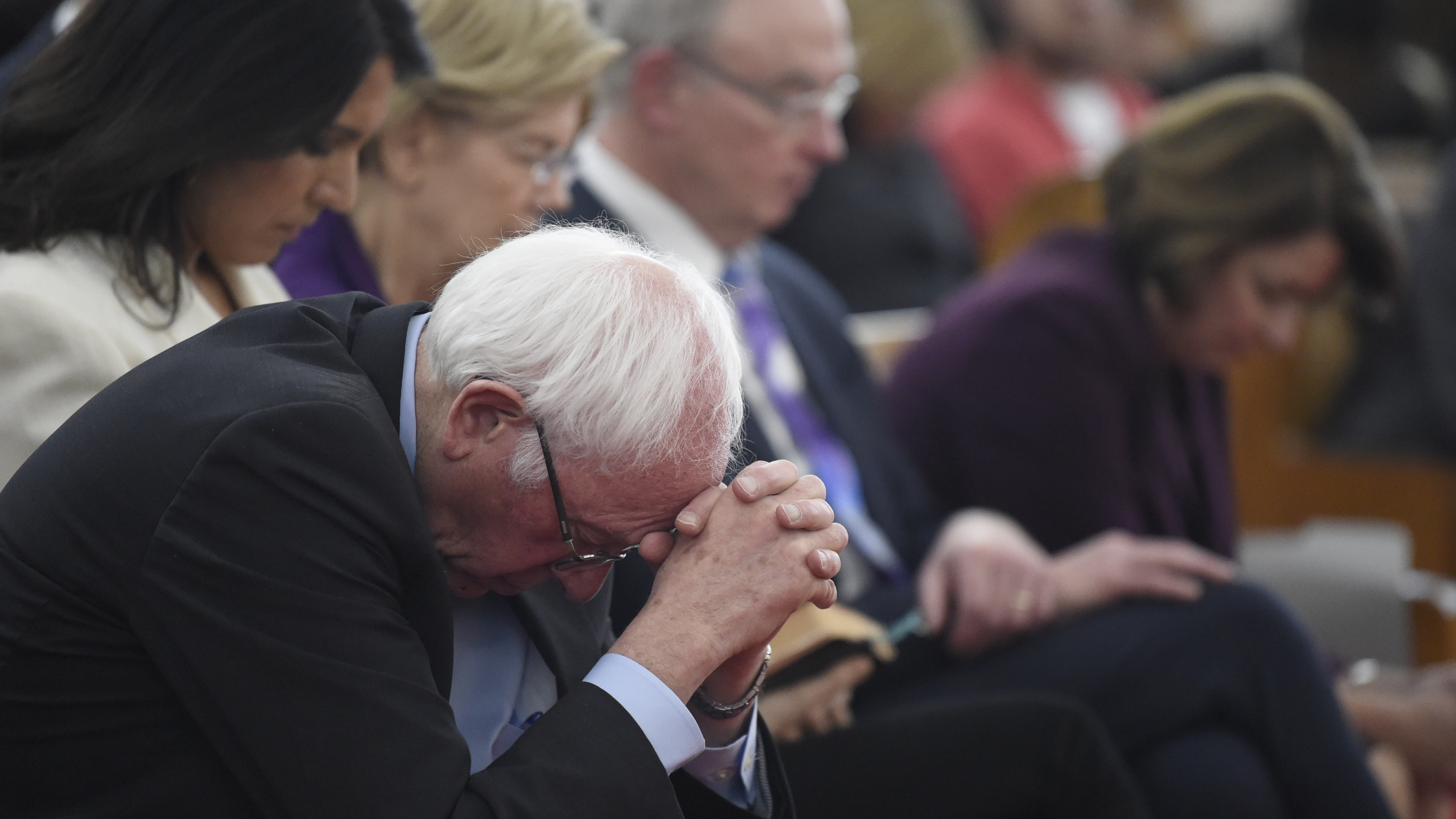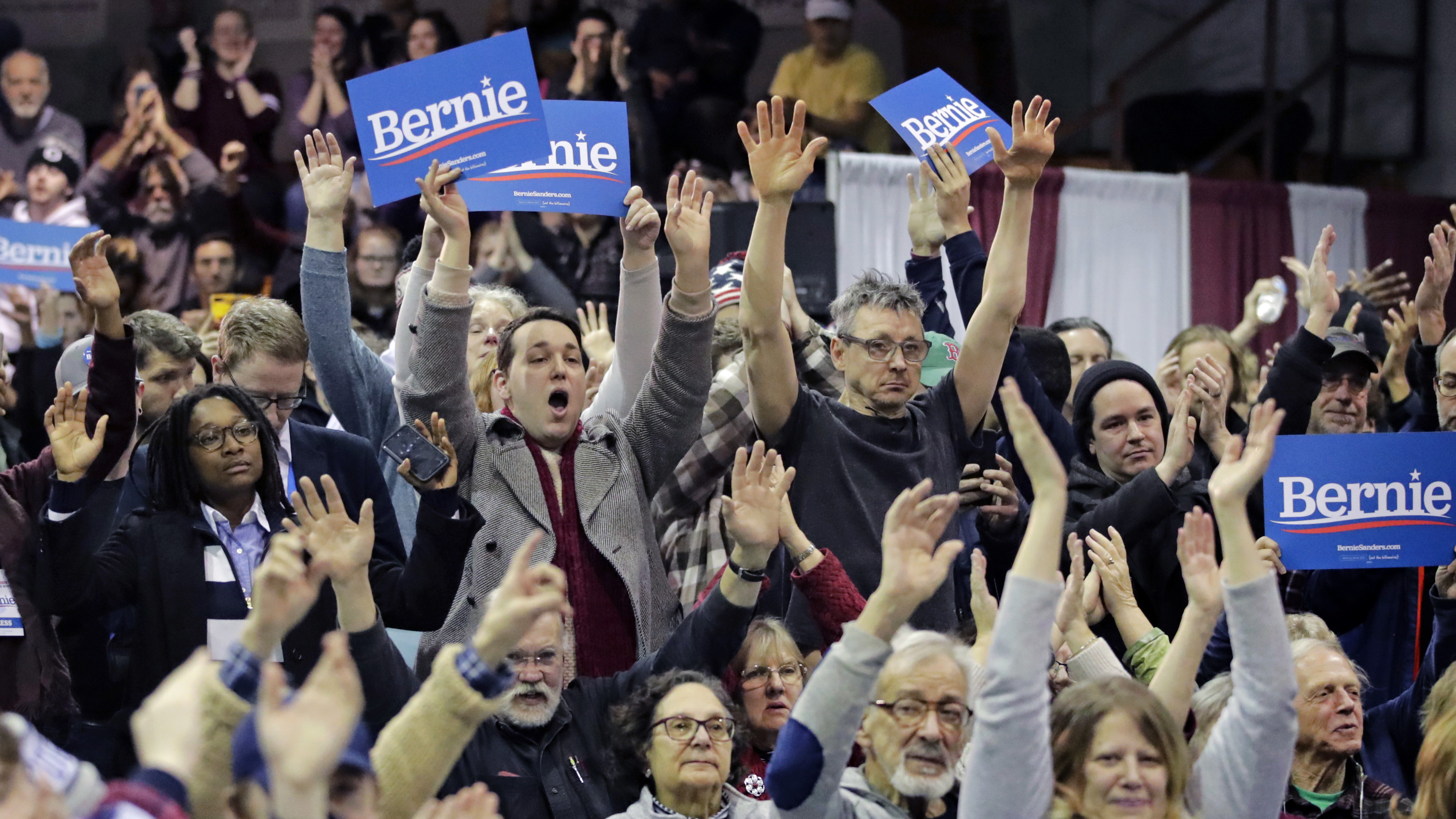
On January 17, 1991, then U.S. Representative from Vermont Bernie Sanders was getting ready to deliver a short address on Capitol Hill as U.S.-led coalition forces officially began their massive air campaign known as Operation Desert Storm to repel Iraqi forces occupying Kuwait.
As the bespectacled, silver-haired Sanders walked to the podium, he gave a serious, yet sincere look into the largely empty House Chamber and proceeded to deliver a firm rebuttal for military intervention in Iraq.
"It is also a tragic day for the future of our planet and for the children, 30,000 of whom in the third world will starve to death today while we spend billions to wage this war," the Congressman declared. "And 25 percent of whom live in our own country because we apparently lacked the funds to provide them a minimal standard of living."
Sanders went on by predicting that the country was heading toward a disastrous war in the Middle East and enthusiastically pleaded his colleagues who were nowhere to be seen, to help stop the bombing immediately.
As an independent freshman in Congress who didn't belong to either major political party, Sanders often found himself alienated by his colleagues many of whom he accused of working on behalf of the wealthy elite. His lack of popularity was made worse by the fact that he was a self-described "socialist."
Even today, the word is still used frequently by American politicians to frag each other, often with considerable damage. Yet, in typical Bernie fashion, he carried on with his angry rants about the "greedy" Wall Street banks and the growing wealth inequality for the next three decades.
Sanders would later credit his zealotry for equality to his childhood growing up in a working class neighborhood in Brooklyn, New York. As a child, he encountered Jewish refugees who still had serial numbers branded on their arms from the Nazi Holocaust. The experience had a profound impact on Sanders, who was born to Jewish immigrants from Poland.
Sanders went on to attend Brooklyn College for a year before transferring to the University of Chicago, where he experienced a "major period of intellectual ferment," Sanders told the Vermont Vanguard. As the civil rights movement demanded change of racial laws throughout the country, Bernie Sanders was ready to answer the call.
The activist during civil rights movement
In January 1962, dozens of University of Chicago students from the Congress of Racial Equality marched across the campus. The band led by Chairman Sanders arrived at the office of President George Beadle. For over two weeks, the students sat outside Beadle's office and demanded change of the school's housing segregation policies.
"We feel it is an intolerable situation, when Negro and white students of the university cannot live together in university owned apartments," Sanders told his classmates who took part in the sit-in.
Under relentless pressure from the Sanders camp, school officials ended segregation of university housing the following year. The victory, however, only emboldened the young activist's progressive vision. Soon, he joined marches protesting segregation of Chicago's public schools not far from campus where he would be arrested and dragged through the street by police.

Democratic presidential candidate Bernie Sanders attends a Martin Luther King Jr. Day prayer service in Columbia, South Carolina, U.S., January 20, 2020. /AP
Democratic presidential candidate Bernie Sanders attends a Martin Luther King Jr. Day prayer service in Columbia, South Carolina, U.S., January 20, 2020. /AP
The injustice that Sanders experienced during the civil rights movement – people beaten and jailed by a system that dictated and delivered resources based on the color of their skin – came to shape Sanders' worldview from racism to U.S. militarism. He sees many struggles as essentially the same against an unfair system that shielded the privileged and brutalized anyone dared to question its authority, including himself.
The visions from his civil rights years would guide and strengthen him as he tread the vicious currents of American politics.
Independent and socialist in Congress
As the sole U.S. Representative from Vermont, Bernie was an oddball. The self-described "socialist" was quick to dismiss the body that he was elected to, as well as his colleagues who he viewed as working for the rich.
"Bernie alienates his natural allies," former Representative Barney Frank from Massachusetts told the Los Angeles Times months after Sanders took office. "His holier-than-thou attitude – saying in a very loud voice he is smarter than everyone else and purer than everyone else – really undercuts his effectiveness."
Sanders took comfort in his status as independent and went to length to preserve it, even as he chaired over a group of mostly Democrats in the Congressional Progressive Caucus which he founded.
If anything, Sanders used his third-party status to his advantage. Fact-checking service PolitiFact found that he passed more roll call amendments than any other House member between 1995 and 2007, a feat that earned him the nickname "the amendment king" from Rolling Stone magazine.
Powered by a stoic heart, Sanders buckled into his progressive position through four U.S. presidents and pushed for a series of liberal-minded reforms on banking, healthcare and immigration. Many of these reforms, however, would drown out in Washington's enormous political vortex.
Despite the regular setbacks and dismissals, Sanders went about business much like the modern American version of Sisyphus, only to be content about the seemingly impossible tasks related to changing the politics of a nation. He waited for his opportunities, the biggest of which came in the form of the 2016 presidential election.
The bid for commander-in-chief
When Hillary Clinton took the stage to accept her democratic nomination for president in July 2016, it had become clear that her main opponent in the race, the septuagenarian Senator from Vermont, had made history.
Bernie Sanders, whose name had remained relatively obscure to most Americans when he announced his campaign in April 2015, had generated a massive grassroots movement seemingly overnight, all relying on donations from his supporters averaging 27 U.S. dollars.
Everywhere he went, 75-year-old Sanders drew tens of thousands of cheerful supporters who packed gyms and stadiums to hear his preaching on "democratic socialism" – a concept shunned even by the Democratic Party's left wing and progressive allies including Elizabeth Warren.

A rally for Democratic presidential candidate Sen. Bernie Sanders at Franklin Pierce University in Rindge, New Hampshire, U.S., February 10, 2020. /AP
A rally for Democratic presidential candidate Sen. Bernie Sanders at Franklin Pierce University in Rindge, New Hampshire, U.S., February 10, 2020. /AP
"Sanders is riding a wave of popular discontent not unlike what Donald Trump capitalized on in 2016," Democratic strategist Max Burns told CGTN. "Everywhere we look, Americans see an economy working great for the ultra-rich, but not for them. And Bernie speaks directly to those people."
Sander's most defining legacy in 2016 was the shift of Democratic Party's position to the left on a variety of issues under pressure from his campaign. The senator's "revolution" also paved the way for other progressive candidates like New York's Alexandria Ocasio-Cortez who was elected to the House in 2019 and became a Sanders surrogate in this year's primary.
After the recent Nevada caucuses, Sanders now takes a commanding lead both in the national polls and in terms of delegate count. Many have predicted a showdown between Sanders and former New York City mayor and Billionaire Michael Bloomberg.
"Right now his number one priority ought to be courting skeptical Democratic superdelegates as insurance against losing the nomination at the convention," Burns said.